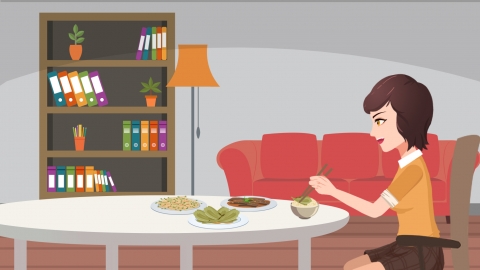Will patients with cholecystitis feel uncomfortable after eating?
During acute flare-ups or improper eating, patients with cholecystitis are prone to discomfort such as abdominal pain and bloating. When the condition stabilizes and the diet is light, these unpleasant symptoms often subside or disappear. If severe abdominal pain, nausea, or vomiting occur after eating, prompt medical attention at a hepatobiliary surgery clinic is recommended.

During an acute cholecystitis episode, the gallbladder is in a state of congestion and edema. Eating causes the gallbladder to contract, which can intensify inflammatory irritation, leading to right upper abdominal pain, nausea, or even vomiting. At this time, fasting or consuming only small amounts of low-fat liquid foods is advised to avoid overburdening the gallbladder and worsening symptoms.
For patients with chronic cholecystitis or those recovering from an acute episode, discomfort is usually minimal when eating low-fat, easily digestible foods (such as porridge and vegetables), chewing thoroughly, and maintaining regular meal patterns. However, consuming greasy, spicy foods or overeating may trigger strong gallbladder contractions, resulting in bloating, dull pain, and other discomforts that negatively affect the eating experience.
Daily care should include developing a low-fat dietary plan for the patient, avoiding fried foods and fatty meats, eating smaller meals more frequently to reduce gallbladder strain, creating a relaxed atmosphere during meals, allowing appropriate rest after eating, monitoring post-meal reactions, and promptly adjusting the diet or seeking medical advice if discomfort occurs.




